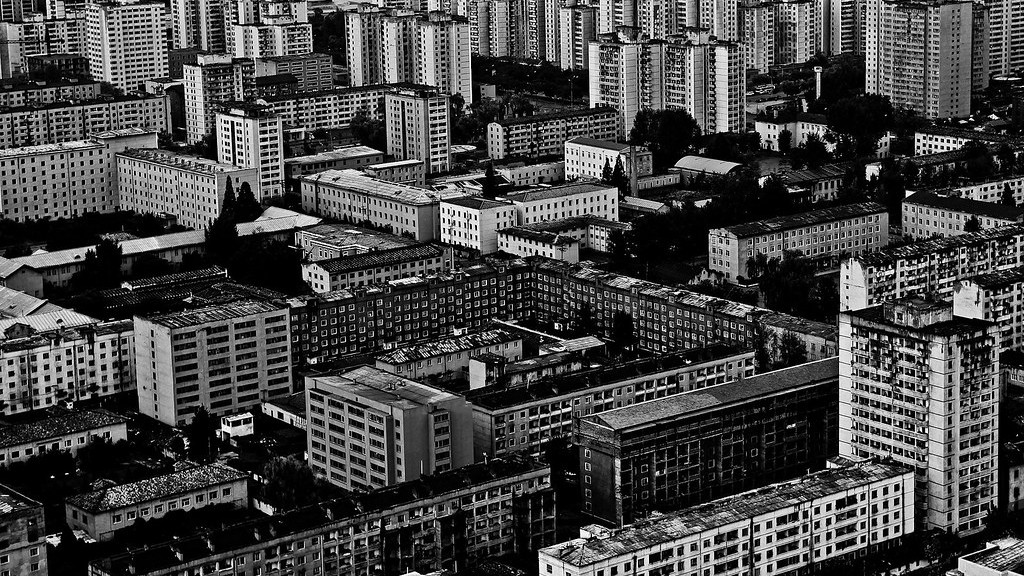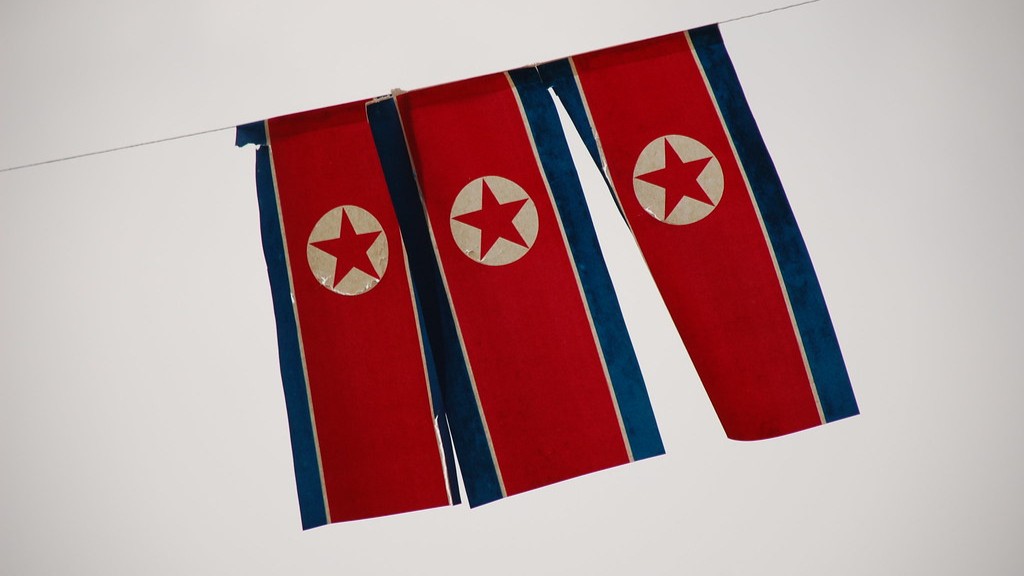Kim Jong Un is the current leader of North Korea. Kim Jong Un is the General Secretary of the Workers’ Party of Korea, Chairman of the State Affairs Commission, Chairman of the Central Military Commission, and Supreme Commander of the Korean People’s Army and is recognized as the supreme leader of North Korea both by the constitution and in practice. Kim Jong Un is the third and youngest son of Kim Jong Il and the grandson of Kim Il Sung, the first leader of North Korea, who established the country’s dynastic rule. Kim Jong Un has held the post of leader of North Korea since 2011, following his father’s death.
Kim Jong Un leads one of the most reclusive and secretive countries in the world and has succeeded at maintaining control over North Korea by use of an oppressive government and military policies. His government has countered its social society with an authoritarian regime, allowing for little international contact, sporadic communications between citizens and its allies, mass executions, public trials, forced labor and executions for public offenses, as well as frequent strikes, civil disorder, and high levels of economic deprivation. As a result of the military stance that Kim Jong Un has taken since ascending to power, the United Nations Security Council has imposed multiple bans and sanctions on both Kim Jong Un and the North Korean government.
However, despite the harshness of his rule, Kim Jong Un has taken steps to improve the quality of life for the North Korean people. Kim Jong Un has implemented economic reforms such as loosening economic restrictions on farmers and allowing for more market activities, provided basic rights to citizens such as access to healthcare, and implemented social reforms such as loosening certain restrictions on press and internet access. Kim Jong Un has also entered into diplomatic agreements with other countries, such as when he agreed to denuclearize the Korean peninsula and foster diplomatic ties with South Korea through the Panmunjom Declaration.
The regime under Kim Jong Un’s rule has been noted for its authoritarianism and human rights abuses, including public executions and harsh punishments for opposition to the government, but some have praised the leader for taking a more nuanced diplomatic stance towards its citizens and other countries. While Kim Jong Un has taken notable steps to ease the conditions of the North Korean people and Improve the country’s diplomatic standing, there is no immediate indication that he plans to open up the country much more or remove its ruthless style of government.
North Korean Leadership under Kim Jong Un
Kim Jong Un is the de facto leader of North Korea and has held the titles of General Secretary of the Workers’ Party of Korea, Chairman of the State Affairs Commission, and Supreme Commander of the Korean People’s Army since his appointment to the posts in 2011. Kim’s control of the government and the military has been consolidated through a system of nepotism and hereditary succession. While the younger Kim Jong Un purged many of his father’s and grandfather’s loyalists from within the government, he has adopted and strengthened the political and military traditions of his predecessors.
Kim Jong Un has placed particular emphasis on expanding North Korea’s nuclear capabilities, increasing military spending by around 40 percent and investing heavily in nuclear weapons and strategic missiles. He has increased North Korea’s aggressive rhetoric against South Korea and the United States, and conducted a series of provocative missile tests that have further strained the relationship between North Korea and its neighboring countries. In 2018, Kim Jong Un attended a series of summits with the leaders of South Korea and the United States, in which he agreed to denuclearize the Korean peninsula and to foster closer diplomatic ties between the two countries.
International Relations under Kim Jong Un
Under Kim Jong Un’s leadership, North Korea has increased its military capabilities and external tension. Although the Korean peninsula has seen some progress towards denuclearization and improving relations with South Korea and the United States, the risk of military conflict has continued to remain in the region. Kim Jong Un has placed a particular emphasis on improving relations with China and Russia, and maintained close ties with the two countries even as his regime faces increasing international pressure. North Korea is also a signatory to many international agreements and conventions, including the Nuclear Non-Proliferation Treaty and the Universal Declaration of Human Rights.
North Korea is notorious for its human rights abuses, including public executions, harsh punishments for opposing the government, forced labor and prison camps, and severely limited freedom of movement and expression. The United Nations has repeatedly criticized Kim Jong Un’s regime for its human rights violations, and in 2014, the United Nations Commission of Inquiry on Human Rights in North Korea released a damning report documenting the country’s systematic human rights abuses. In response to international criticism, North Korea has denied the accusations and emphasized its “uniquely successful” system of governance.
Economic Climate Under Kim Jong Un
North Korea’s economy has been stagnant under Kim Jong Un’s rule. The country is heavily reliant on foreign aid from China, and the government maintains nearly complete control over the economy. As a result, the majority of North Koreans continue to live in extreme poverty, and the average North Korean worker earns about one tenth of what their South Korean counterpart does. In recent years, Kim Jong Un has implemented some economic reforms, such as loosening economic restrictions on farmers and allowing for more market activities, but the economic status of the country remains largely unchanged.
The regime also strictly controls information, and has a monopoly on most sources of news and entertainment. Although the government has loosened certain restrictions on the press and internet access, the media remains heavily censored and citizens are discouraged from engaging in any form of political or economic discourse.
United Nations Sanctions on North Korea
In response to the increasing nuclear threat posed by North Korea under Kim Jong Un’s rule, the United Nations Security Council has passed multiple bans and sanctions against North Korea and its leaders. The sanctions target North Korea’s trade in weapons and technology, as well as its financial and banking sector, and have been accompanied by asset freezes and travel bans on North Korean officials. Kim Jong Un has repeatedly denounced the sanctions, claiming that they are unjust and unwarranted.
The United States has also imposed its own sanctions, including banning imports from North Korea, banning all trade with North Korea, and prohibiting North Korean vessels from entering US territorial waters. As a result of the sanctions, North Korea has had difficulty accessing the global financial system, and the country has been unable to attract foreign investment or build relationships with international companies. The sanctions have had a significant impact on North Korea’s economy, and have been blamed for the country’s deep economic crisis.
International Public Opinion of Kim Jong Un
International opinion of Kim Jong Un is largely one of condemnation, with many world leaders criticizing the ruler’s mistreatment of his own citizens and his hostile rhetoric towards other countries. However, while many world leaders have spoken out against Kim Jong Un and his policies, some have praised the leader for taking a more nuanced diplomatic stance towards other countries and for attempting to ease the conditions of the North Korean people. Kim Jong Un has also been credited with changing the international perception of North Korea and bringing the country back into the global spotlight.
However, due to the North Korean regime’s censorship of information, limited knowledge of public opinion in North Korea remains. North Korean citizens are often discouraged from publicly expressing their views of Kim Jong Un and the government, and only limited information regarding popular opinion is available. Despite this, recent reports suggest that the people of North Korea are increasingly dissatisfied with the government, and that the younger generations are beginning to lose faith in the government’s ability to improve their lives.
Kim Jong Un’s Relationship with Other World Leaders
Kim Jong Un has taken part in several historic summits with world leaders, including with the leaders of the United States, China, and South Korea. Kim’s meeting with US President Donald Trump in 2018 was credited with cooling tensions between the two nations and initiating diplomatic talks between the two countries. Trump and Kim have since met multiple times, with the most recent meeting taking place in June 2019. Kim has also held a series of summits with South Korean President Moon Jae-in, and has sought to strengthen diplomatic ties between the two countries.
Kim has also maintained close ties with Chinese President Xi Jinping, and the two leaders have met multiple times to discuss bilateral issues. Kim has also sought to strengthen North Korea’s relationship with Russia, and in 2019 visited Russian President Vladimir Putin in Moscow for the first time in 30 years. Kim’s diplomatic visits and dialogue with world leaders have sought to bring North Korea more into the international community, although his authoritarian rule at home has caused many to remain skeptical of his intentions.



